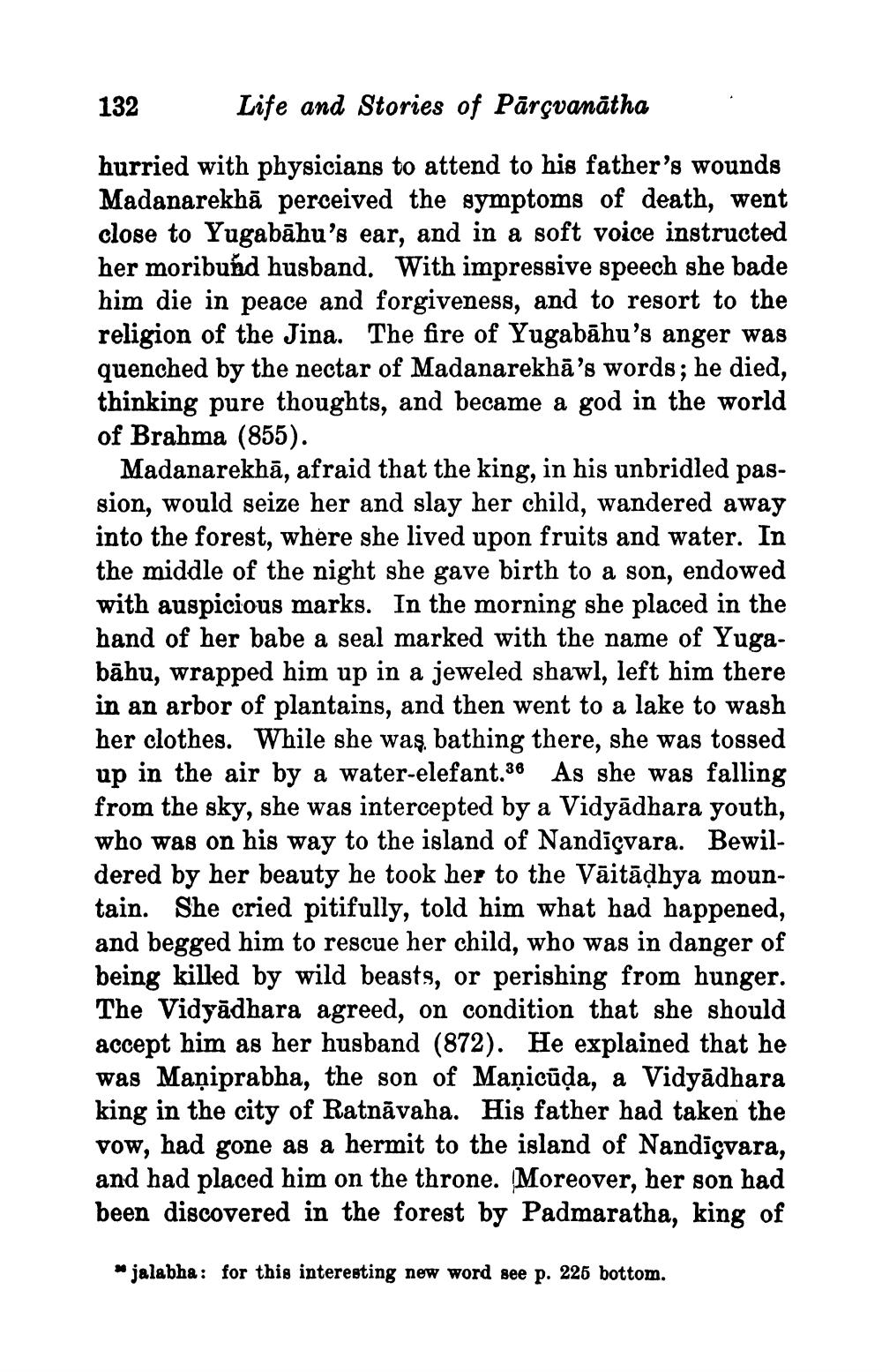________________
132 Life and Stories of Pārçvanātha hurried with physicians to attend to his father's wounds Madanarekhā perceived the symptoms of death, went close to Yugabāhu's ear, and in a soft voice instructed her moribund husband. With impressive speech she bade him die in peace and forgiveness, and to resort to the religion of the Jina. The fire of Yugabāhu's anger was quenched by the nectar of Madanarekhā's words; he died, thinking pure thoughts, and became a god in the world of Brahma (855).
Madanarekhā, afraid that the king, in his unbridled passion, would seize her and slay her child, wandered away into the forest, where she lived upon fruits and water. In the middle of the night she gave birth to a son, endowed with auspicious marks. In the morning she placed in the hand of her babe a seal marked with the name of Yugabāhu, wrapped him up in a jeweled shawl, left him there in an arbor of plantains, and then went to a lake to wash her clothes. While she was bathing there, she was tossed up in the air by a water-elefant.36 As she was falling from the sky, she was intercepted by a Vidyādhara youth, who was on his way to the island of Nandiçvara. Bewildered by her beauty he took her to the Vāitādhya mountain. She cried pitifully, told him what had happened, and begged him to rescue her child, who was in danger of being killed by wild beasts, or perishing from hunger. The Vidyadhara agreed, on condition that she should accept him as her husband (872). He explained that he was Maņiprabha, the son of Manicūda, a Vidyadhara king in the city of Ratnāvaha. His father had taken the vow, had gone as a hermit to the island of Nandicvara, and had placed him on the throne. Moreover, her son had been discovered in the forest by Padmaratha, king of
* jalabha: for this interesting new word see p. 225 bottom.




